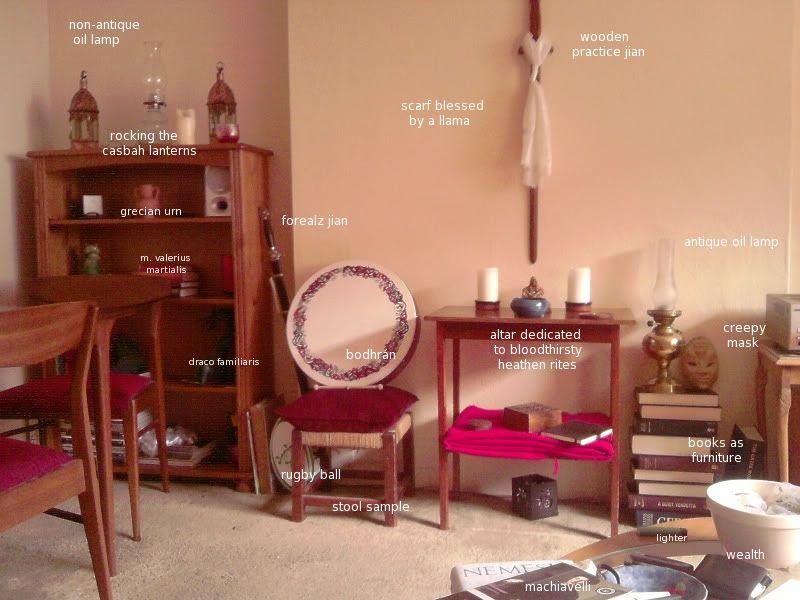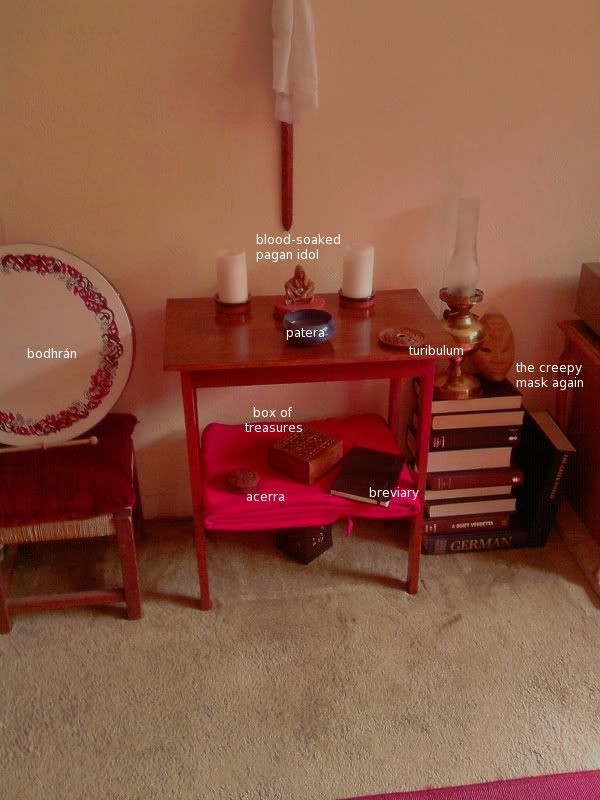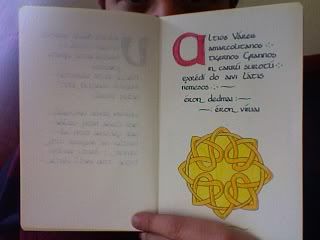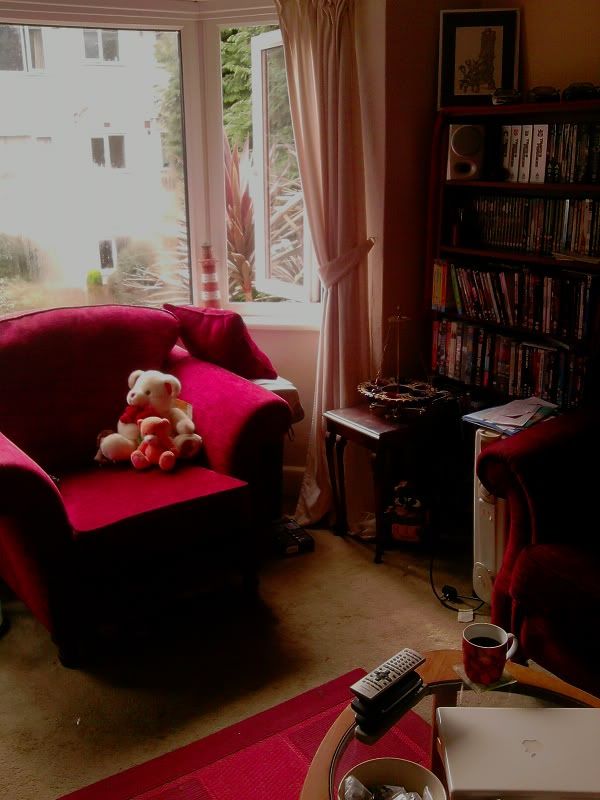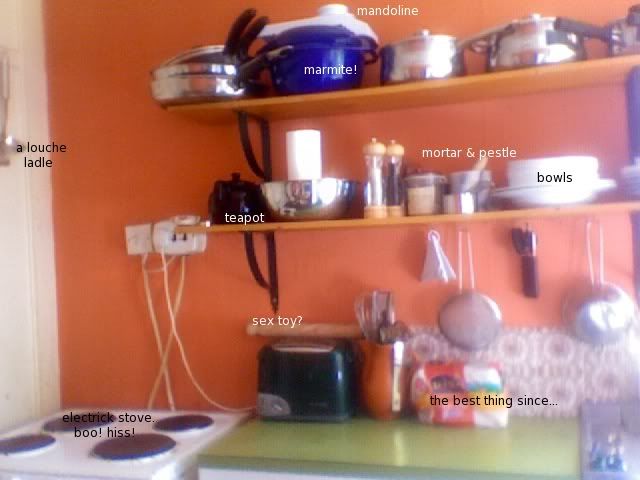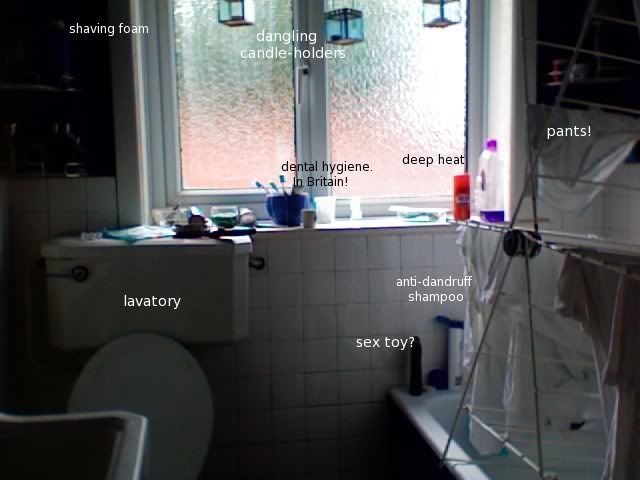As those who are friends with me on Facebook will by now know, I once again find myself among the ranks of the unemployed.
For the past three or so months, basically since I was diagnosed with bipolar disorder, I've been visiting a therapist weekly for CBT[1]. I initially didn't bother telling anybody at work, as I don't like wearing my mental health difficulties on my sleeve. However, I let the manager know, as I felt that I owed him an explanation for why I was requesting every Monday off. He was highly supportive, and obligingly let the kitchen staff sort out our own rota, which gave me every Sunday and Monday off.
About three weeks ago, we had a change in management at O'Murphy's. The new manager hasn't made a great first impression, on either the staff or the regular customers. She's ridden roughshod over the pub's running, and managed to successfully alienate virtually all of the employees: which is quite an achievement, given that during the three weeks of her tenure so far she's only actually been on site for a total of seven shifts. Staff morale has taken a nosedive, and it's more than a little apparent that any the staff no longer take any pride in their work. Being old in cunning and hospitality industry politics, I had resolved to simply keep my head down, get on with earning money and escape at the earliest possible juncture. Little change, really, from before she started: I've been applying for jobs and looking for a way out for a while now.
It's also apparent that where the previous manager believed that delegation was the key to good management, that left to their own devices a group of motivated, well-trained staff need only the lightest hand to guide them; the new manager believes firmly in central direction by a strong hand. One might say that if a manager's central role is to "lead the team", the previous manager's emphasis was on "team", while the new one's is on "lead". This kind of micro-managing control freakery has always been anathematic to my personal management style, but each to their own. It was no surprise then that she un-delegated the kitchen rota and took charge of it herself (in between the business-critical tasks of rearranging the canonical order of condiments on tables and inventorying the lemons). Initially, we thought little of this, just letting her know that we all had commitments on certain days, and would appreciate it if we could have those days off on a regular basis.
However, when the rota for this week was posted on the noticeboard last Tuesday, I noticed that I had been rota'd on for this Monday. I knocked on the door of her office and asked for a moment of her time. She asked me if it was important, I replied that it was about the rota. She told me that she was extremely busy and she'd come and talk to me later. Shortly afterwards, she left for the day and absented herself until Saturday evening. By now I was used to her lengthy absences, so on Wednesday I spoke to the Assistant Manager, who said that he would sort it out for me and arrange cover for Monday.
So yesterday, I was somewhat surprised to get a text message informing me that I was still on the rota for the evening shift. I phoned in and pointed out that not only had I spoken to the AM a week ago about this, I also had a pretty unbreakable commitment for that evening. The new manager told me in no uncertain terms that I didn't have a choice about this, that if I wanted the day off I should have spoken to her about it. Pointing out that she was never actually there didn't go down too well, and she suggested that it was somehow my own fault. I tried to explain about having an appointment with a therapist, but she cut me off, said that my mental health wasn't her problem and told me to buck my ideas up. I could either come up with a "better reason" for not doing the shift, or arrange cover myself.
One of my most uneradicable character flaws is my pride. I'm not a particularly humble person, and have problems with people bossing me about. Being treated with a lack of respect tends to trigger a species of cold rage in me. Now, at this juncture I could of course have simply backed down, cancelled my therapy appointment and done the shift: and apologising for raising my voice on the phone most likely wouldn't have gone amiss. However, I had sensed an affront to my dignity. To back down would have been an assault on my personal sense of honour. My bluff had been called.
Ever willing to cut off my nose in order to spite my face, then, I sat down and wrote the following letter:
Dear ________
Please accept this letter as notice of my resignation, effective immediately. I regret the inconvenience that this will cause to my colleagues, but circumstances leave me no choice.
I would like to take the opportunity to thank all of my colleagues, past and present, for the support they have afforded me during my time at O'Murphy's. I would also like to wish both the team and yourself the best of luck. I am sure you will all need it.
Sincerely,
Deiniol Jones
Still seething, I took this off down to O'Murphy's. She was behind the bar.
"I assume you've come to apologise for the way you spoke to me earlier?"
"Could I talk to you in private, please? It won't take long."
"Oh, I think it will, I have a few things..," she began to say. I cut her off.
"No, it won't. Unless you're a slow reader, of course." Which was probably somewhat unwise of me. I didn't care, by this point. She asked me to come into the office and sat down. I stayed standing.
"You asked me to come up with a 'better reason'. I think this should cover it."
With that, I chucked the letter down in front of her and turned to leave. She stopped me by the door:
"And what's this?"
"What do you think? It's a note from my mother," I said and walked out. A couple of seconds later, she followed me and called out:
"You do know that you're barred from the premises for six months now? It's company policy." One of the barstaff overheard this and pointed out that it wasn't at all, it was just petty. Ignoring the manager, I went and kissed the barmaids on the cheek and told them to take care of themselves.
And now, it's started to actually sink in. I've walked out of yet another job: this must be the tenth. And all because of my damned stiff-necked pride. Again.
~~~~
1) Don't Google this acronym, for the love of god. In this context, it refers to "Cognitive Behavioural Therapy".
